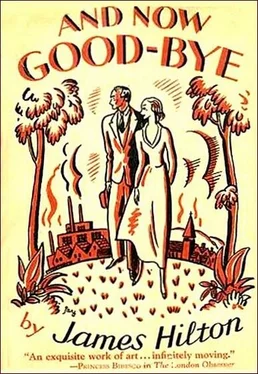Dinner was served for four, since by that time Mrs. Freemantle had dressed and come downstairs. She was a thin, angular woman with everything rather sharp about her—her nose, her chin, her cheekbones, her eyes, her way of moving about, and her voice and speech. She was the youngest of her family, while Aunt Viney was the eldest, and despite a difference of physique which could hardly have been greater, there was yet an obvious sisterhood between them. They might bicker when they were alone (indeed, they sometimes did), but whenever they were together they had an air of being ranged foursquare against the rest of the world, even when the rest of the world consisted only of Howat. Their dispositions were complementary rather than similar; Aunt Viney could bluster, fly into tempers, and shout; but Mrs. Freemantle’s voice, even in most perturbed moments, never rose above a high-pitched and hurried wail.
Howat was always extremely thoughtful and polite to both of them, and submitted good-humouredly to their varying attentions. It was Aunt Viney who sewed buttons on for him (when she remembered), cooked, ordered from shops, and did the more domestic work of the household; in a shadowy way, if ever he were inclined to be irritated by her, he could always reflect comfortingly that she worked very hard, and that no one could imagine what they would all do without her. For his wife, of course, he had tenderer feelings, and if ever she were a little trying he always remembered how highly strung she was, and that quite small things were apt to upset her in a way that she couldn’t really help.
This particular Monday dinner found both Aunt Viney and Mrs. Freemantle a little cross, the former from a noisy and indeterminate quarrel with the servant which had been in progress; most of the morning, and the latter because the roof of one of the bedrooms was leaking again and the builder, in her opinion, couldn’t have done his job properly when last he had come to repair it. But she was the kind of woman who could never he satisfied with saying a thing once; she had to talk rapidly and indignantly about the leaking roof for over ten minutes, while Howat listened with sympathy tempered by the knowledge that the roof always would leak till it was overhauled thoroughly, and that such an operation would cost more than he was ever likely to he able to afford. His stipend was just under three hundred a year, and though both his wife and Aunt Viney had small incomes of their own, there was really nothing like enough for the upkeep of so big a house. He himself would have preferred to move into a much smaller one, but his wife would never listen to the suggestion, and always talked of any residence less in size than the Manse as ‘one of those poky little working-class houses’.
During or just after the midday meal it was Howat’s habit to outline and discuss with her some part of his daily routine; he did this even when it was an effort, for he believed it his duty to let her share in all his affairs. He hardly realised that she had other and more satisfying points of contact with the small world of Browdley, and that a good deal of his well- meant conversation bored her. It bored her now, for instance, when he began to talk about the address he was going to deliver that evening on Mozart. He began to sketch out a plan of his ideas, and as often happened when once he began, he went chattering on, with slowly mounting enthusiasm, till Mary began to fidget and his wife to exchange supercilious glances with her sister. Their private opinion was that ideas might be all right for the platform or pulpit, but were hardly suitable for the dinner-table. In the end Mary neatly torpedoed the monologue by enquiring the date of Mozart’s birth. Howat, after a rather vacant pause, said he didn’t know exactly, but he fancied it must be somewhere about the middle of the eighteenth century. They were all very much amused at his confessed ignorance, and Mary rejoined pertly: “You know, dad, I think you always go far above people’s heads when you talk to them about music. Why don’t you tell them the useful facts—when he was born, when he died, the names of the things he wrote, and so on?”
Howat answered: “Yes, of course—I ought to include all that, I admit.”
“Anyhow,” added Mary, “I don’t suppose it matters a great deal, for if this fog keeps on, there won’t be more than half a dozen there.”
Howat nodded and stared blankly at the window, where yellow was already merging through orange to grey.
It was too foggy, indeed, to go visiting in the town that afternoon, especially with the excuse of his bad throat; so he spent a pleasant couple of hours in the little school associated with his chapel. It was a second-rate school, doomed, no doubt, to extinction when any enterprising education policy should take possession of the Browdley authorities; but that day was unlikely to happen soon. Architecturally the school was hopelessly out of date; its rooms were small and badly lit, its corridors long and draughty, and its playgrounds mere patches of wasteland strewn with ink-black cinders. In this establishment there were three classes, the senior in charge of the headmaster, a Mr. Wilkinson, and the two junior ones taught by his daughter and another young woman.
He first of all, as a matter of courtesy, paid a visit to Mr. Wilkinson. Wilkinson was a shabby little man with a pompous manner and a very large, pale, and flabby nose. He experienced certain difficulties of discipline, of which both he and Howat were well aware, but of which they both steadfastly pretended not to be aware; the wastepaper-basket in his room was usually sticky with the remains of half-sucked sweets which, from time to time, he made his pupils disgorge. (Howat would never have known this but for a complaint by the caretaker’s wife.) After spending a few perfunctory moments in the senior room, Howat passed on to his daughter’s, and here, indeed, his pleasure began. For he liked children, with an intensity that was no affectation; he often thought: If I were not a parson I should like most of all to be a schoolmaster. It was true enough, in a way, though, on reflection, he recognised that he would never have made a very good schoolmaster. He would always have shrunk from teaching the dull stuff that had to be learnt. Besides, he had the most preposterous ideas about education—preposterous, he was prepared to admit, from any normal parent’s standpoint. As it was, he could put his theories into strictly limited practice with the certainty that as soon as he was out of the school the teacher would undo any harm he might have perpetrated.
His daughter was pleased to let him take the class for a time, since it gave her extra moments to work at her Latin verbs. He began by walking round amongst the desks and observing what the children were doing; it was a geography lesson, apparently, and most of them were laboriously copying a map of Ireland out of ancient and very dirty text-books. He asked one boy why they were doing this, but the boy said he did not know. Then he began to talk to the boy, at first in an undertone, but later, without definitely realising it, in a voice to which all the class soon came to listen. He asked if anyone had ever been to Ireland; none had; then he asked if anyone had ever crossed the sea in a ship. And from that he progressed to a general talk about islands, and then islands very far away, and then uninhabited islands, and soon he was off on one of those extraordinary impromptu stories which he enjoyed just as much as did any of his listeners. This one was about two small boys sailing across the sea in a small boat, and coming to a land where nobody from England had ever been before. Howat then went to the blackboard, wiped out a careful list of exports and imports which his daughter had drawn up, and began to sketch a map of this strange land just as it came to the knowledge of the two boys. First the vague outline of the shore in the distance, then a narrow river inlet leading into the heart of dense jungle, and so on. Mountains, lakes, and vast swamps all figured in the boys’ wanderings, and as each exciting adventure happened Howat marked it down on the board. By the time that the young travellers had lost themselves in the midst of a forest infested with giant spiders and boa- constrictors, the whole class was in a ferment of excitement, as was Howat himself; for half an hour during that November afternoon Browdley did not exist for some four dozen of its inhabitants; the fog and the cotton-mill across the road were lost behind a blaze of tropic sunshine. When at last the school-bell rang, Howat stopped as one disturbed suddenly from a dream; he seemed to recollect himself and added, in an ordinary voice: “Well, boys and girls, that’s all to-day, I think. Perhaps I’ll tell you more about what happened to the two boys some other time. I hope you know now something about maps, anyhow.” But it was a lame excuse; he didn’t particularly hope they did, or care whether they did or not; his aim had been different—something not very easy to put into words—something, indeed, which he was never quite sure of understanding himself.
Читать дальше











